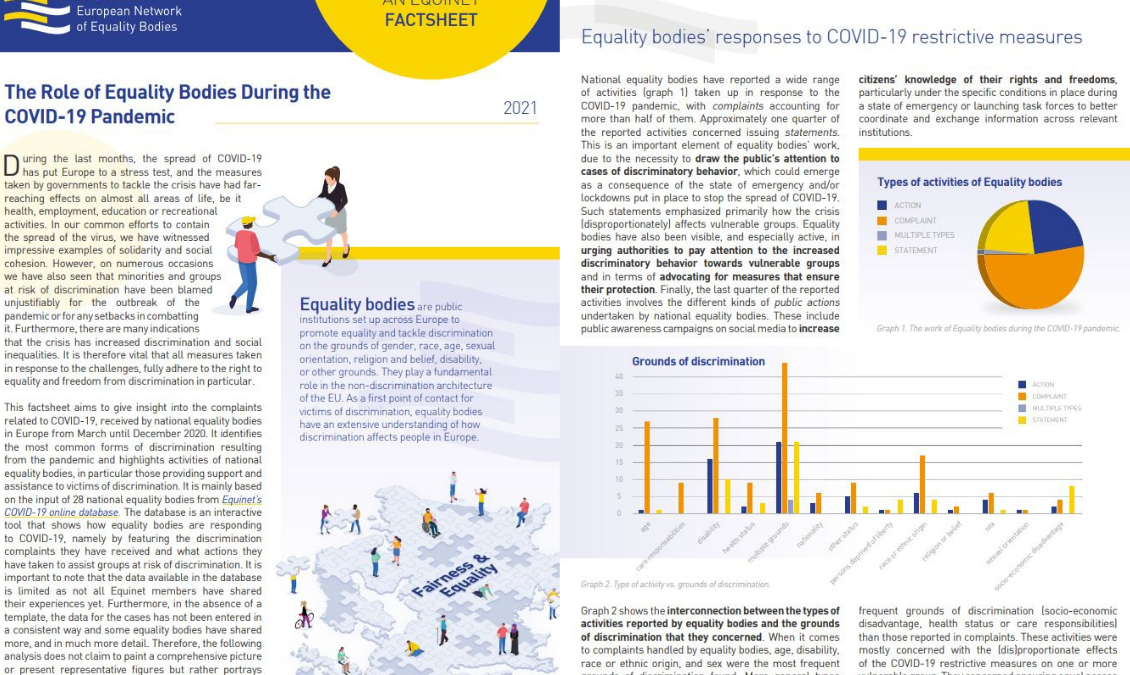European Network of Equality Bodies (Equinet) set up a working group to analyse the data provided by its members from across Europe on the discrimination complaints submitted to them by the citizens, as well as the challenges the bodies themselves have encountered in their work since the beginning of the pandemic.
The data have shown that in many of the countries included in the analysis the measures taken by the governments to suppress the spread of the COVID-19 pandemic have negatively impacted the human rights situation and have additionally exacerbated the existing inequalities, especially so for the most vulnerable groups of citizens. National equality bodies have played a crucial role in this period when it comes to protecting equality – the principle that ought to be at the centre of the COVID-19 crisis responses.
Following an analysis of the data provided by equality bodies from 28 European countries, including the Office of the Ombudswoman of the Republic of Croatia, on their activities related to the COVID-19 crisis, the Equinet working group produced a factsheet on the citizens’ discrimination complaints received by the responding bodies during the pandemic. The document features both an overview of the most common types of discrimination recorded on various grounds, as well as concrete examples of unequal treatment from several countries and those related to the challenges faced by equality bodies from the onset of the pandemic.
The Office of the Ombudswoman provided the example of unequal treatment of enforcement debtors, who, despite the measures to suppress the pandemic and reduce social contact at the onset of the pandemic, were prevented from using bank cards to withdraw money from their protected accounts. This meant that they could not use ATM and other services requiring a bank card, but were forced to personally go to the bank. As this group of citizens included older persons and those with chronic conditions, who are at a heightened risk of infection and should avoid social contact as much as possible, after conducting an investigation procedure, we determined that this situation could in fact have constituted discrimination on the grounds of property and health status. Consequently, we recommended that the banks take necessary steps, such as issuing bank cards to the owners of protected accounts, and many did take measures to make their services more accessible.
When it comes to our work during 2020 more generally, most of the discrimination complaints submitted to us by the citizens related to the areas of work and employment, public information and the media, access to goods and services and health care. You can find more information on the complaints we worked on, other discrimination-related topics as well as our recommendations in our 2020 Annual Report (Croatian language version).


